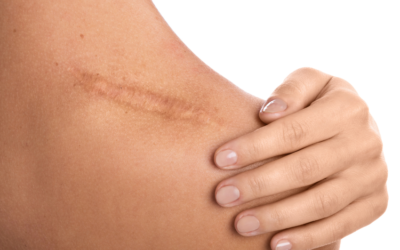Clínicas Estéticas en Canarias
El Instituto de Cirugía Avanzada lo conformamos un equipo de profesionales médicos dedicados completamente a la salud y bienestar de las personas. Contamos con instalaciones y equipamiento médico quirúrgico y láser de última tecnología, como pocos en Canarias.
Cirugía Avanzada
Contamos con quirófanos propios tanto en nuestras clínicas como en otros centros. Nuestros médicos cirujanos tienen años de experiencia y reconocimiento en el sector.
Seguimiento Constante
Facilitamos a nuestros pacientes un seguimiento constante post-operatorio que garantiza una correcta recuperación tras su cirugía.
Amplio horario de servicios
En nuestros centros le facilitamos un amplio horario de atención a nuestros pacientes adaptándonos a su agenda, consúlte nuestro horario en cada centro.
Unidades Especializadas
Contamos con médicos y personal clínico en nuestros distintos departamentos garantizando una atención especializada y personalizada para cada caso.
Clínicas de Cirugía Estética y Medicina Estética en Canarias
El Instituto de Cirugía Avanzada lo conformamos un equipo de profesionales médicos dedicados completamente a la salud y bienestar de las personas. Contamos con instalaciones y equipamiento médico quirúrgico y láser de última tecnología, como otros pocos en Canarias.
Cirugía
Estética
Medicina
Estética
Nutrición
y obesidad
Odontología
Implantología
Injerto
capilar
Técnicas y Tratamientos Estéticos de las Clínicas

Coolsculpting
Técnica innovadora de lipoescultura sin cirugía.


Lipo Alta Definición
Reducimos la grasa localizada que no responde a la dieta ni al ejercicio físico.

Mamoplastia
Consigue ese tamaño deseado mediante la colocación de prótesis.

Otoplastia
Cambiamos definitivamente la apariencia no deseada de sus orejas.

Blefaroplastia
Corregir el exceso de piel y/o grasa de los párpados.

Técnica Mirada Felina
Levantamiento acorde a la forma de los ojos y del resto de la cara.

Lipofilling
Aportar mayor volumen facial extrayendo grasa localizada en otra zona del cuerpo.
La cirugía no solo es modelar nuestro cuerpo, también es salud.
Siempre innovamos aplicando las últimas técnicas en nuestro sector demostrando a nuestros pacientes resultados excelentes. Realizamos una amplia variedad de tratamientos médicos estéticos y quirúrgicos, siempre pensando en su salud, belleza y bienestar.

Nuestros Profesionales Médicos
Clinica ICA cuenta con profesionales médicos y cirujanos especializados en prácticamente todos los sectores de la cirugía estética contando con más de 25 años de experiencia y avalados por miles de pacientes que son el testimonio de nuestra verdadera vocación de servicio.

SERGIO LUIS
Gerencia

LINA VOLKOVA
Gerencia

Dra. SONIA DÍAZ
Dirección médica. Cirujana estética

Dra. NADIA VAN MOEN DEL AMO
Dirección médica. Medicina estética

Dr. JOAQUÍN GARCÍA APARICIO
Cirujano estético

Dr. HILARIO ROBLEDO GONZÁLEZ
Cirujano estético, general y digestiva

Dr. JHON MAURICIO MARTÍNEZ GAITAN
Médico estético

Dr. Eduardo Calderón Ledezma
Médico estético e internista
DR. JOSÉ MANUEL LUQUE
Cirujano Capilar

Dra. CARMEN DÍAZ LÓPEZ
Cirujana General y Digestiva

Dr. RICARDO CABALLERO
Ginecología
RICARDO-RIAT CORTES
Cirujano plástico

MELANIA DÓNIZ GONZÁLEZ
Nutricionista

IRMA RADZEVICIUTE
Auxiliar de Medicina Estética

VANESA GONZÁLEZ RAMÍREZ
Auxiliar de Medicina Estética

CRISTIAN GONZÁLEZ LÓPEZ
Auxiliar de trasplante capilar

EVA ALONSO GUÍO
Higienista dental y responsable de gabinete

JESÚS DÍAZ PÉREZ
Análisis y administración

MAYERLY HURTADO
Asistencia

YANIRA HERNÁNDEZ CABRERA
Recepcionista
Muy contenta con la doctora Sonia, muy atenta conmigo y muy profesional ella y todo su equipo, estoy muy contenta con el resultado.
¡Altamente recomendada! La Dra. Sonia y su equipo de trabajo son muy profesionales y sin perder la oportunidad de brindarte apoyo antes, durante y después de cada tratamiento.
Blog de Cirugía y Medicina Estética
Microneedling para la mejora de tu piel
Nuestra piel es un fiel reflejo del paso del tiempo y de todo lo que hemos vivido. Por ello, según avanzan los años, aparecen arruguitas o manchas con las que no siempre nos sentimos cómodos. Si estas pequeñas imperfecciones no te hacen sentir bien...
¿Puedes hacerte un microinjerto capilar?
La pérdida de cabello es una preocupación muy común y no conoce de edades. Tanto hombres como mujeres buscan una solución a este problema estético. El microinjerto capilar es una intervención quirúrgica que permite recuperar el cabello. En Clínica...
Mejora el aspecto de tus cicatrices con láser
Muchos pacientes consideran que tienen un problema estético sin solución. Uno muy común son las cicatrices. Hoy, te contamos que no debes resignarte porque juntos podemos mejorar tu situación. En el campo de la Medicina Estética se ha avanzado...



